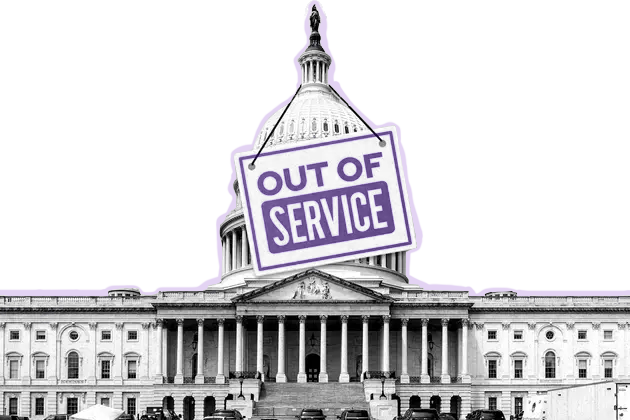Shutdown 101: What You Need to Know
So, the government is shut down—what does that mean for you?
The government has shut down for the first time since 2019, resulting in the temporary suspension of some US government services. Approximately 40% of the federal workforce – around 750,000 people – are expected to be placed on unpaid leave.
You might be asking, “How will the government shutdown impact me?”
Well, we have answers.
Services for Children, Families, and Seniors
If the shutdown lasts less than three months, Medicare, Medicaid, and disability insurance benefits will remain uninterrupted. After that, benefits could be impacted.
Social Security checks and student loan payments will continue.
Critical nutrition assistance is in real jeopardy if the shutdown goes longer than a month. The Supplemental Nutrition Assistance Program (SNAP) will be funded through October; however, November SNAP benefits may be delayed or missed entirely. State and local funding for the Special Supplemental Nutrition Program for Women, Infants, and Children (WIC) will continue, but federal funds are expected to stop within a week.
Economic Impacts
New loans to small businesses will not be processed, and many new government-backed mortgages will not be processed or insured.
The Securities and Exchange Commission, a government agency that helps regulate and investigate Wall Street, will operate with only 9% of its staff.
Unpaid federal employees won’t be able to contribute as much to local economies. This impact will be magnified if the administration follows through with mass layoffs.
Health and Safety
Air traffic controllers and TSA security agents will continue to work without pay, but the Department of Transportation will not hire any new air traffic controllers, and a quarter of TSA staff will be furloughed.
The Food and Drug Administration will not conduct routine (preventive) inspections – only those tied to existing foodborne illness outbreaks, recalls, or consumer complaints.
The Environmental Protection Agency will not clean up hazardous waste if there is no immediate threat to health or property.
Military Members and Their Families
Military personnel on active duty will continue their work with no pay. While the majority of employees at the Department of Veterans Affairs will still work through the shutdown, regional offices will be closed, and communications with veterans and the public could be impacted.
VA hospitals and clinics will stay open, but services like job training, support for veteran businesses, and assistance for homeless veterans will be impacted.
Museums and National Parks
The National Zoo and Smithsonian museums in DC have funding to remain open, but only until at least October 6.
National Parks will be partially open, with people able to access roads, lookouts, trails, and open-air memorials. Anything that requires staff, such as visitor centers, will be closed, and there will be fewer emergency services. Don’t get too excited - The National Parks Conservation Association said that keeping parks open during a shutdown in the past caused damage that took months and in some cases years to reverse.
How do these large programs keep going if so many government employees aren’t working?
Good question. While many essential services have to continue by law (like Social Security), the government cannot operate with a skeleton crew forever. There could be delays and disruptions (think processing new Social Security applications) – and that’s before the administration’s potential mass firings.
That’s why we need to talk to our friends and family about how this government shutdown will affect all our lives, not just federal workers.



